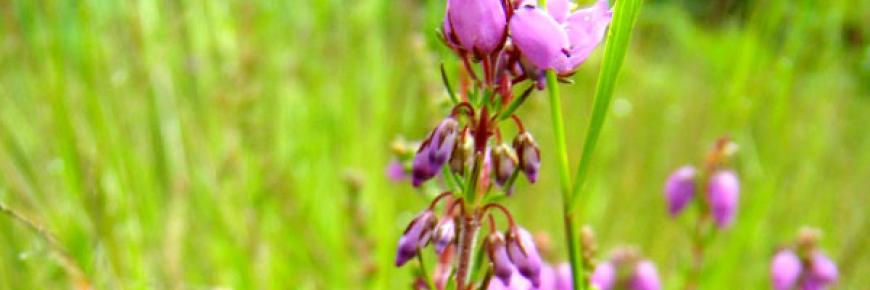About Biodiversity
What is biodiversity?
Biodiversity is a contraction of biological diversity, encompassing the variability and variety of life on Earth. Importantly, biodiversity includes all living things - not just wildlife.
Swallowtail caterpillar © A Kelly
Why does biodiversity matter?
Although often overlooked, biodiversity provides a range of ecosystem services, contributing to the quality of our day-to-day lives.
• Biodiversity helps to purify water and air, reduces flooding, promotes nutrient cycling and soil formation, decomposes wastes and regulates the climate. These indispensable ‘life support’ benefits have been estimated to be worth billions of pounds each year.
• Contact with nature can improve learning performance in school children, enhance emotional development, be an effective treatment for depression and reduce stress levels.
• Biodiversity has been a source of enjoyment, inspiration and spiritual nourishment for millennia.
• Biodiversity has intrinsic value, and many people argue that all species have the right to exist.
Biodiversity is under severe threat
Habitat destruction, climate change, invasive alien species, over-exploitation and pollution has caused biodiversity to decrease at an alarming rate.
• Nearly 500 species have become extinct in England in the last 200 years.
• 40% of the UK’s reedbeds have disappeared since 1945.
• 75% of England’s lowland heaths have been lost in the last 200 years.
• Nearly 50% of England and Wales’ ancient woodland has been destroyed.
• Current rates of extinction may be 1,000 times greater than global natural background levels.
The Biodiversity Action Plan (BAP) Process
- In response to the extinction crisis, the Convention on Biological Diversity (CBD) was launched in 1992, at the famous “Earth Summit” in Rio de Janeiro. The Convention calls upon Parties to “develop national strategies, plans or programmes for the conservation and sustainable use of biodiversity”.
- Following the Earth Summit, the UK became the first country in the world to prepare a national Biodiversity Action Plan, with the launch of the UK Biodiversity Action Plan in 1994.
- The Norfolk Biodiversity Action Plan was subsequently launched in 1999, as a mechanism for translating national objectives into local action and implementing the national Species and Habitat Action Plans at the county level.
- In 2002, the Government published Working with the grain of nature: a biodiversity strategy for England. This sought to ensure the incorporation of biodiversity into multiple sectors, including agriculture, water, forestry, marine and coastal management, and urban areas.
- In 2007, a revised and expanded list of UK BAP priority species and habitats was published, based on the results of a comprehensive, two-year review. The list now contains a total of 1,150 species and 65 habitats.
- In 2011, the Government reaffirmed its commitment to biodiversity with the publication of Biodiversity 2020: A strategy for England’s wildlife and ecosystem services. This sets the ambitious goal of halting biodiversity loss by 2020 and calls for a range of measures, including landscape scale conservation and steps to recognise the economic value of biodiversity.
For more information about biodiversity, visit the Natural History Museum’s website.
For more information about the BAP process in the UK, visit the website of the Joint Nature Conservation Committee (JNCC).
For more information about the international agreement which underpins the BAP process, visit the website of the Convention on Biological Diversity.

